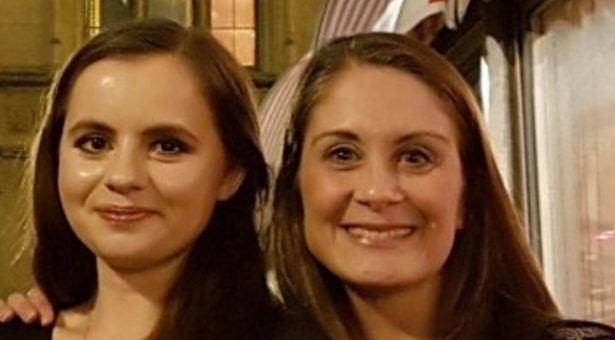Alicia exceeds expectations at the British Society for Antimicrobial Chemotherapy (BSAC)

Alicia Russell, a student at the John Innes Centre, wanted to gain knowledge and experience of the different work that is being carried out to help combat antimicrobial resistance (AMR). After looking at the list of ‘warm’ leads available on the MyCareerCentral PIPS website Alicia found an opportunity with the British Society for Antimicrobial Chemotherapy (BSAC) which fitted the bill perfectly.
Alicia undertook her placement in her second year, which she found worked well. “I think it was good to have completed at least a full year of research as I had gained some good results in the lab before starting my PIPS. However, it was also early enough that I still have lots of time left to finish my PhD so I wasn’t stressed about taking the time off from lab work”, reflects Alicia. She advises future PIPS students not to worry about putting your lab work on hold; “I was hesitant to leave my PhD for 3 months but found it easy to switch off and settle into something new once I started my placement”.
The main objective of the internship project was to analyse MIC data from different bacterial pathogens causing hospital-acquired pneumonia, in order to describe antibiotic resistance trends for different drug-bug combinations across an 8-year period. Alicia also looked at multi-drug resistance prevalence in each bacterial group, and the genetic resistance mechanisms associated with resistant phenotypes. The results of this analysis will form the basis of a manuscript about resistance trends in hospital-onset respiratory pathogens in the UK and Ireland, data that has not been presented before.
As a secondary objective, Alicia reviewed antibiotic treatment recommendations for hospital-acquired pneumonia from different countries and from different NHS Trusts across the UK, using literature and online searches which will be published as a research letter to the Journal of Antimicrobial Chemotherapy so will enable positive changes to antibiotic prescribing practices. “I wasn’t expecting to achieve as much as I did in a 3-month period and am excited to potentially publish work which could have positive implications in healthcare”, says Alicia. Alicia also helped collate antimicrobial stewardship resources for a project for the World Health Organisation and wrote a blog post about her research for BSAC’s new blog.
Alicia found that it was sometimes challenging to carry out this kind of work with limited background knowledge of clinical microbiology, but she learnt a lot in the process and was able to work with some well-respected experts in the field. Alicia also learnt a lot about the different challenges in AMR and the work being carried out to combat these issues, including antimicrobial stewardship, raising public awareness, engaging with policymakers, and different areas of research such as in vaccines and diagnostics. “It was really valuable and interesting to be able to put my PhD work in a wider context. I work in natural products discovery where we hope to find new antimicrobial compounds, but being able to appreciate the regulatory and economic challenges surrounding antibiotic development has been really valuable”, Alicia reflects. Another highlight was the opportunity to attend BSAC’s annual Spring Conference entitled: ”Defeating AMR -The trinity of prevention, preservation & promotion”,which also included attending dinner at the House of Lords.
Alicia exceeded the original objectives of her internship project and this greatly improved her self-confidence. The positive feedback she received from her supervisor and the CEO also helped her to recognise her strengths which has improved her confidence. Organisational skills were improved as Alicia had to manage her time and prioritise different work responsibilities. Alicia also developed her communication, presentation and team working as she gave a presentation of her work to the BSAC Resistance Surveillance Programme Standing Committee which included representatives from pharmaceutical companies and the Chair of the Committee. Alicia will be presenting this work at a session at a national event, the Federation of Infection Societies Conference (FIS), in November 2018. Written communication skills were also developed writing the report and research letter.
Although Alicia is still unsure as to what she wants to do as a future career, her PIPS was valuable to gain experience working at BSAC and consider what sort of job she could look for when she finishes her PhD. Alicia’s hosts were also extremely positive about the internship. Dr Carolyne Horner, Senior Clinical Affairs Officer, says “Alicia soon made great progress organising and analysing what could have been an overwhelming amount of data. …… She produced an excellent and thorough written piece of work and presented her findings to a meeting of established scientists and industry partners without hesitation”. Dr Horner adds “Alicia will achieve great things in whichever career path she chooses in the future and will make a valuable contribution to any team”.
